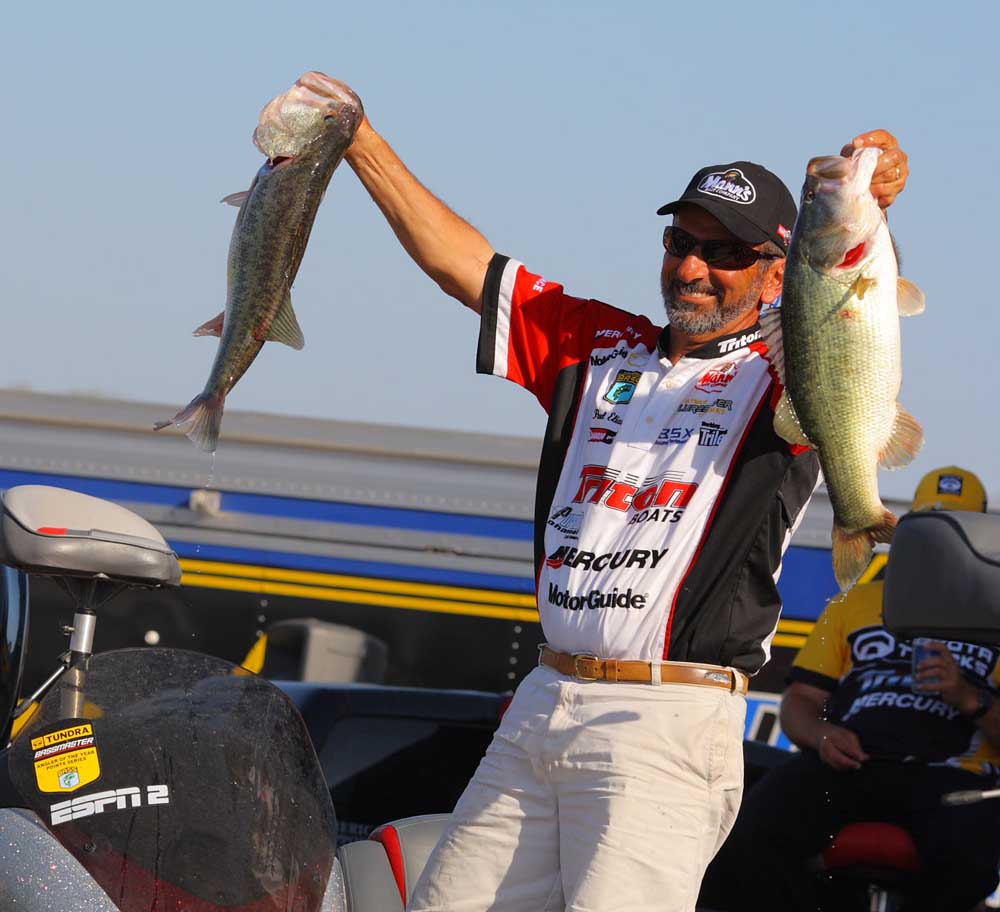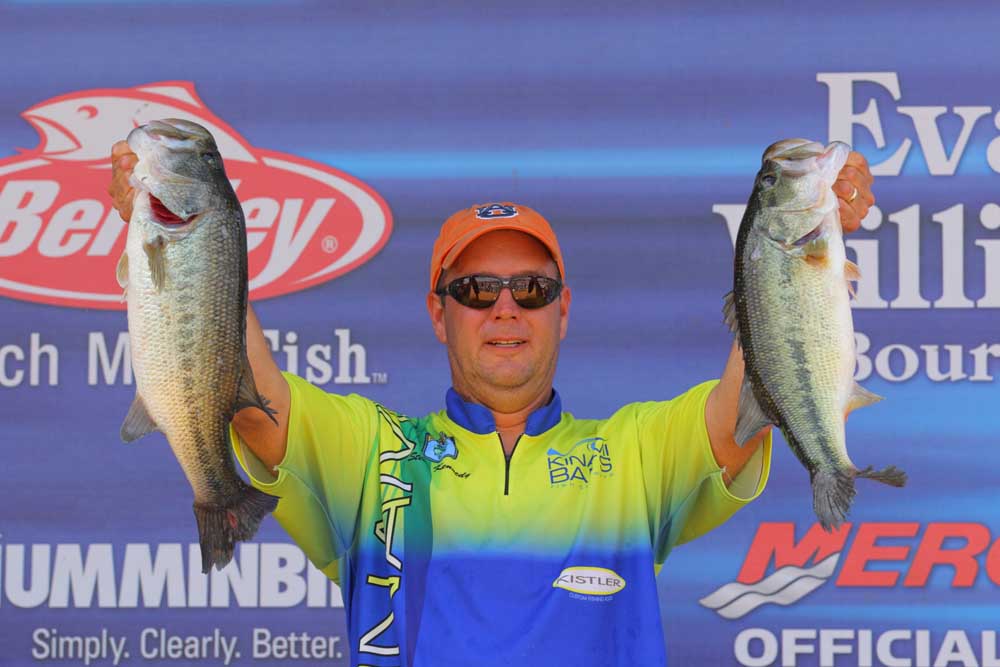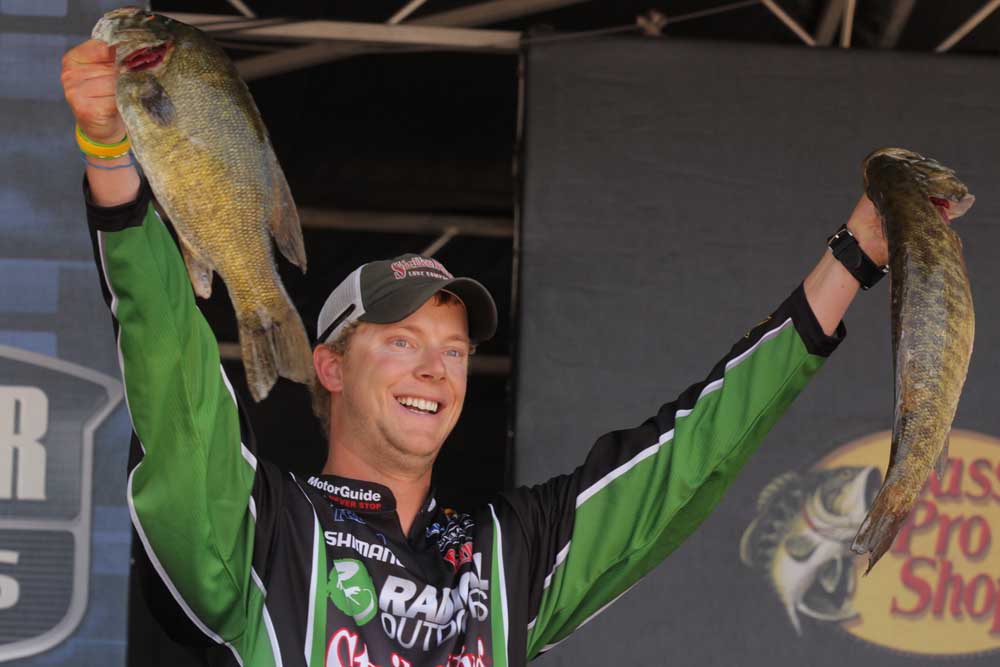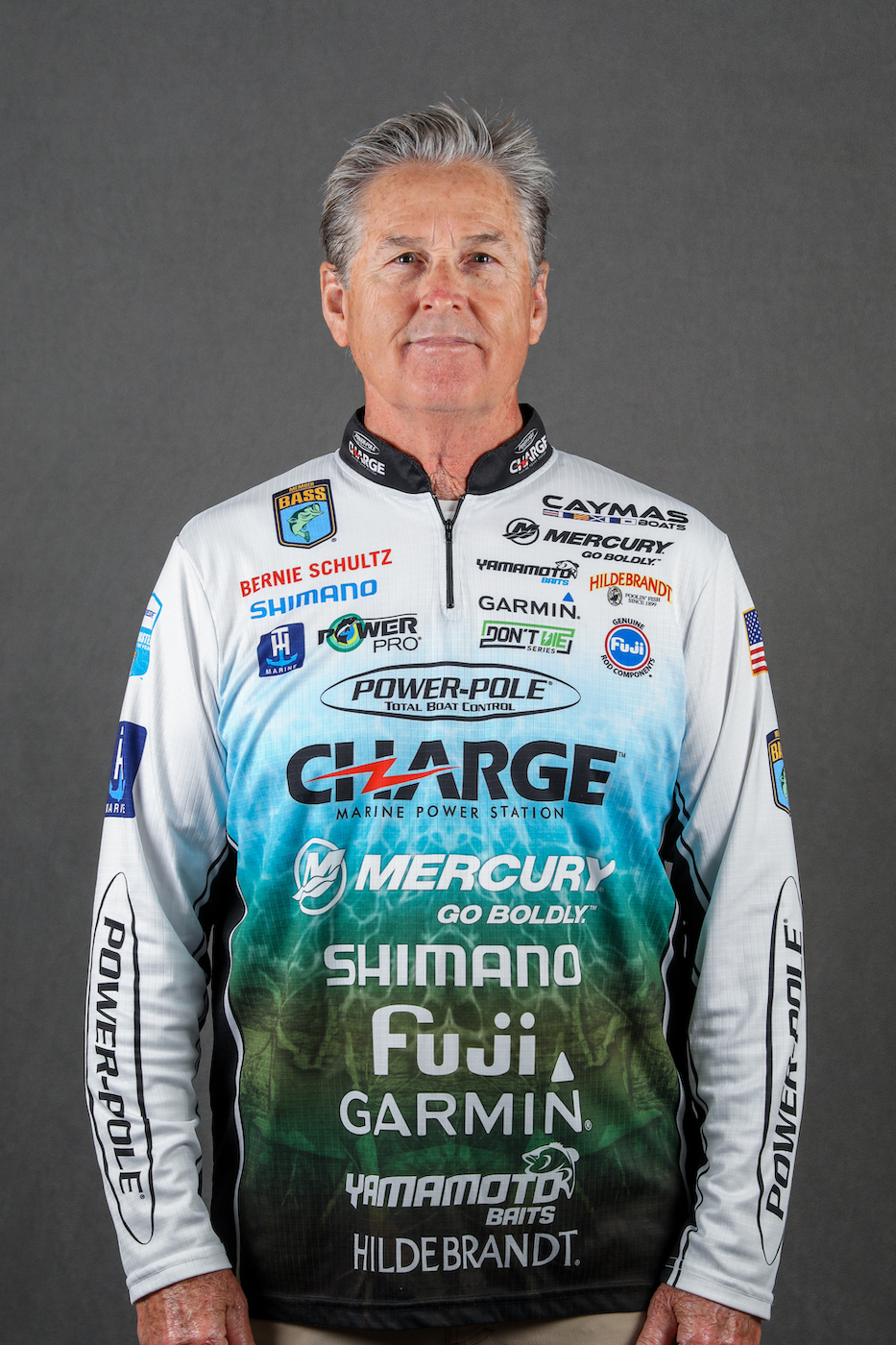Looking ahead to next season’s Bassmaster Elite Series, it’s hard to imagine a more challenging schedule. With so much distance between each venue and fisheries so diverse, it’s certain to take a toll on many of the competitors.
I know I have some concerns.
The logistics of getting from one event to another, both economically and in a timely fashion won’t be easy. For example, the first two events in Texas are back-to-back with no days off between them. Normally this is desirable when we’re a long way from home and the events are near each other. But in this rare instance, the two venues are more than nine hours apart! And with the exception of one Elite competitor who lives in South Texas, we’ll all be driving further from home to get to the second location.
Believe me, the less distance you have to drive after an event, the better. And that goes double in this instance.
Next comes Arkansas. After the Texas stint, most of us will have returned home for the break, so heading to Arkansas will mean a lot of backtracking. Those anglers off to a solid start in the Toyota Tundra Bassmaster Angler of the Year standings will look forward to the drive. Those who are struggling will be counting the miles.
The middle of the season puts us in Alabama and Georgia, then the tour moves north to Wisconsin, New York and Michigan. For a Florida boy, that’s a lot of travel. But then I won’t be getting any sympathy from guys like Skeet Reese, John Murray or Brandon Palaniuk. They travel cross country for nearly every event.
Like it is in other aspects of our profession, much of it comes down to time management. And after so many years of doing this, you would think it gets easier. But it doesn’t. Not only will we be juggling tournaments and appearances, but those of us with families will be trying to find ways to maximize our time at home.
And then there’s the cost of fuel to consider. Man! With gas prices already reaching $5 per gallon on the West Coast, I hate to think what we’re in for come 2013.
With all of this in mind, here’s a quick breakdown of the schedule and what’s in store.
“Say ‘Go’ … Now!”
The tour starts out on the Sabine River near the Gulf Coast at Orange, Texas. Although this section of the river flows directly from Toledo Bend Reservoir, the two waterways are worlds apart.
Dividing Texas from Louisiana, the lower Sabine should fish more like the coastal estuaries found well to the east. And it’s certain that few, if any, Elite Series competitors have any prior knowledge of this fishery. So the Sabine River may prove to be the most level playing field of the entire season.

It’s anybody’s guess as to which lures and patterns will prevail, but I’d bet small crankbaits, spinnerbaits, worms and jigs — all applied to shallow cover — will dominate this event.
From there, we’ll have the long haul to Zapata, Texas, and the Falcon Slam — stop number two in these back-to-back events. This is our second visit to Falcon, and with so many huge catches recorded last time, it’s certain substantial weight will be required just to make the money.
I remember catching five fish over 6 pounds on consecutive casts in that first event, and I did it again the very next day. Incredibly though, even with a two-day total of 65 pounds, I still didn’t reach theTop 10. I don’t know about you, but to me, that’s catching them!
Like last time, I’m sure it will come down to structure fishing outside the better bedding areas. And though a few of the anglers did well on the Mexican side of the lake, I doubt you’ll see many of us crossing the border this time. We may be thrill-seekers, but we try not to be death-defying!
After a short break, the tour resumes on Bull Shoals Lake, Ark. For any Ranger Boats team member, this trip brings added reward. Not only is the fishing great, but we’ll get the opportunity to visit the Ranger factory.
Nearly every angler in the field caught their limit during the 2012 event, so expect the same again this time. And though crankbaits proved to be the lure of choice then, that may not be the case when we return. Bull Shoals is known for its excellent topwater fishing, and if the water floods the bushes, expect the flippers to excel and the weights to be much bigger.
This one should be fun to watch!
Closer to home
As the tour makes its way to West Point Lake in LaGrange, Ga., the southeastern-based anglers will get some relief … at least from all the long-distance driving.
The tour visited West Point in 2010, and though the lake is known to be stingy on big fish, I had one of my best single-day Elite Series catches there. This reservoir may appear small, but in reality it’s quite large. There are countless coves and creeks to explore; and at that time of year, the fish could be almost anywhere.

Determining the most productive depths and tactics will be the first order of business. But anglers will have to keep an open mind, as patterns can change quickly in a postspawn event.
From there the field will move just south to the Alabama River near Montgomery. With limited backwaters and a narrow river channel to work with, it could fish small. Fortunately, the patterns vary. Dean Rojas caught them frogging along shaded banks in the backwaters, while others cranked or flipped the main river. This is likely to be one of those keep-your-head-down-and-grind tournaments.
Weather could also play a factor here, as violent summer thunderstorms frequently pound this part of the country. The last time I fished this section of the river my boat was struck by lightening. The bolt was strong enough to fry my electronics and knock me off my feet. Alton Jones watched it all in disbelief from across the river.
North vs. South
Now the real fun begins, for me at least. The tour moves north to the Upper Mississippi River at La Crosse, Wis. The last time we were there the frog bite was off the hook, and that always makes for fun fishing.
Official tournament waters are spread over three separate pools and many of the competitors will likely exercise the option to lock through. Although each pool offers a somewhat different look, all fish basically the same.

Besides a healthy frog bite, largemouth can be caught numerous other ways — including flipping and shallow cranking. Add a healthy population of smallmouth to the mix and things could get interesting.
Clearly, the Upper Mississippi plays to the strengths of the shallow-water set. And I like that.
One month later, it’s the St. Lawrence River Showdown at Waddington, N.Y. While I like the fact that we’re in Upstate New York, this one comes with a hitch; Ogdensburg is nearly 60 miles from Lake Ontario, and that’s where most of the contenders would prefer to fish.
For those trying to reach the lake, fuel consumption and time management will be of major concern. And that’s if the weather cooperates. Stiff breezes are almost a certainty. If it blows strong enough against the river current, waves will stack to the ceiling, making long runs out of the question.
Although the tournament will likely be won on smallmouth, having the launch site so far from the lake will definitely bring largemouth into play. And to catch either species could require a multitude of lures and tactics. Look for everything from topwaters to bottom-bouncing lures in this event.
Last, but not least, is the Lake St. Clair Championship in Detroit, Mich. Although part of the Great Lakes system, St. Clair is much smaller and fishes differently than the big lakes. Curiously, it’s shaped much like Lake Okeechobee — shallow with the same gradual contours. There are even stands of flat reeds and bulrushes and other aquatic greenery to support a healthy population of largemouth. But don’t be fooled! Lake St. Clair is all about the smallmouth — big ones, and lots of them.
Everything from topwaters to drop shots could prevail here. And so long as the wind cooperates, weights will be stout. I love this body of water and believe it’s a great choice for the finale. Detroit draws huge crowds, and with so much riding on the final event of the regular season, the drama should be intense.
All in all, this eight tournament series should prove to be one of the toughest schedules ever presented by B.A.S.S. The fisheries are so spread out geographically and their habitats so radically different, this season is guaranteed to test the best.
And that’s precisely why they call them the Elites!

